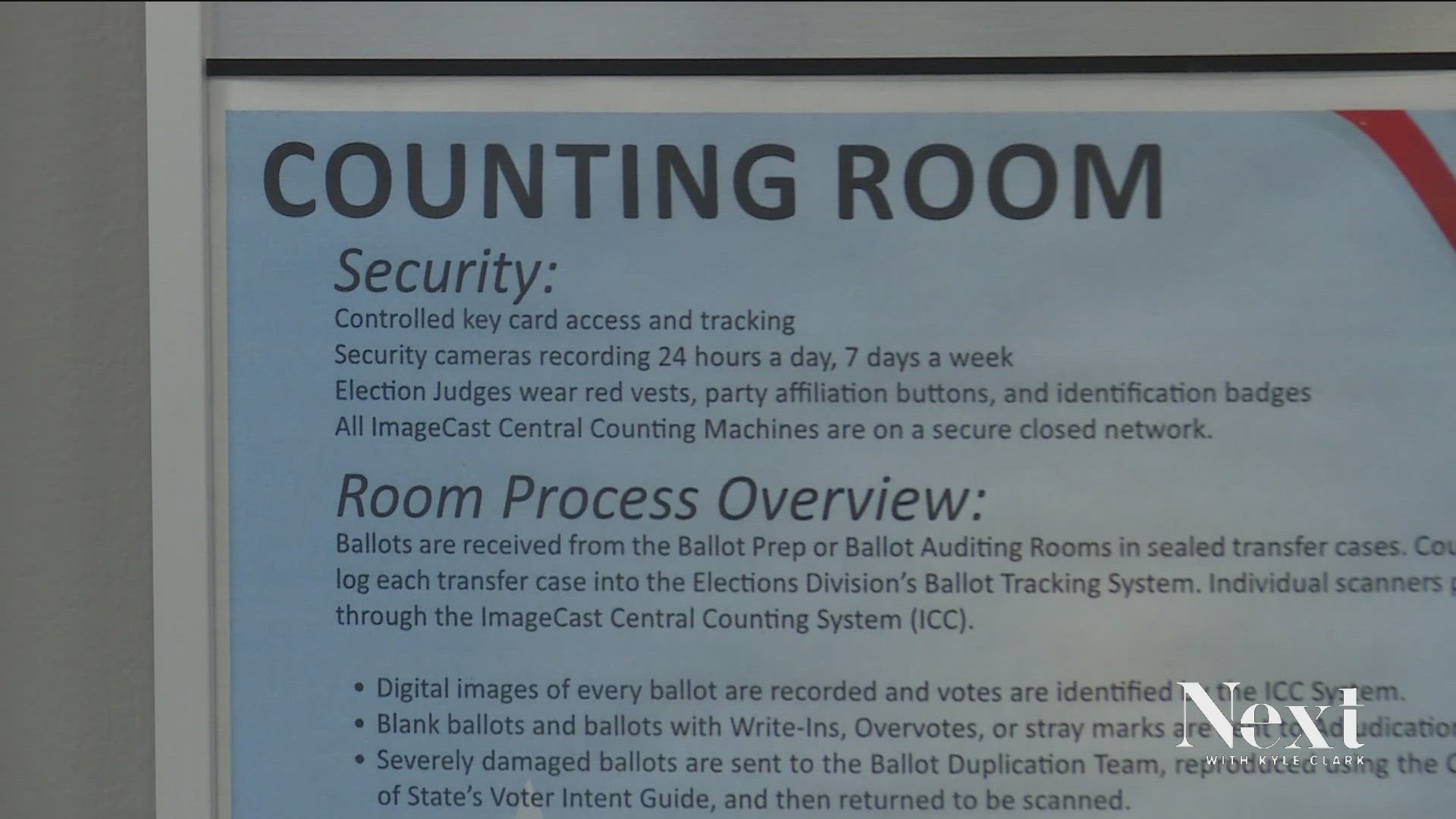DENVER — After every election, Colorado performs an audit.
Each county takes a sampling of ballots and compares the bubbles filled out by voters to what the election software recorded as a vote.
A viewer had a question about how the process worked.
To explain, we'll compare ballot audits to combining math with cooking. Stick around, it will make sense.
Later this month, each county will perform a “risk-limiting audit.”
“What we want to do an audit to make sure that we've announced the correct race winners. That the system tabulated properly when it was counting ballots,” said Hilary Rudy, the Colorado Deputy Elections Director. “We take a specific ballot and we're comparing that exactly to how it was tabulated.”
The Secretary of State’s Office picks a specific race in each county to determine how many ballots are audited in that county.
A viewer wanted to know why the Lakewood mayor’s race was chosen in Jefferson County, when that race was decided by 8,400 votes, instead of the Arvada mayor’s race, which was decided by fewer than 500 votes.
“Full disclosure, it's based on statistics. So, it is kind of complicated. There's a lot of math involved,” Rudy said.
She explained that the race that is selected is less about auditing that specific race than it is about determining how many ballots the county audits overall.
“Just because we've picked one race as a target contest, doesn't mean that we're not auditing all of the races,” Rudy said. “It drives how many ballots need to be pulled and reviewed in order to meet that risk-limit.”
The risk-limit is 3%, which means that if the election voting machines and bipartisan election workers had reported the ballots incorrectly, an audit would catch it 97 out of 100 times.
By picking the Lakewood mayor’s race, the math resulted in 179 Jefferson County ballots set to be audited.
Those ballots will be throughout the county and not just the Lakewood mayor’s race.
“They're going to audit every single contest on the ballots that are selected. So, they might pull ballots that do include the Arvada mayor's race, and they might pull ballots that include other races that maybe have much, much wider margins,” Rudy said.
In 2021, another viewer asked a similar question to Next with Kyle Clark, wanting to know why the Arapahoe County race chosen was a Littleton School Board race that was not close instead of an Aurora City Council race that was decided by fewer than 200 votes.
Had the 2021 Aurora City Council race or the 2023 Arvada mayor’s race been selected, even more ballots would have needed to be reviewed, which is where math meets cooking.
“It's a little like when you make your dinner, you don't need to eat a certain amount of your dinner to know if you salted it well enough, you need to just take a sample of it,” Rudy said.
Bottom line, the audit makes sure that the bubbles you filled in were accurately counted by the election voting equipment.
This process began in 2017, and the election results have been confirmed each time by county clerks who are Republicans, Democrats and unaffiliated.
More from Marshall Zelinger:
SUGGESTED VIDEOS: Next with Kyle Clark

